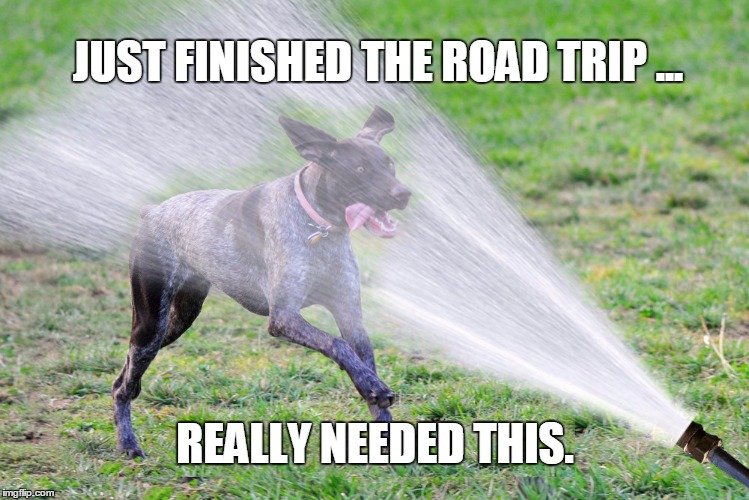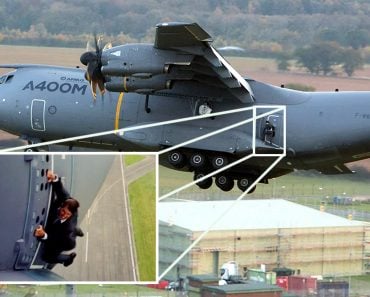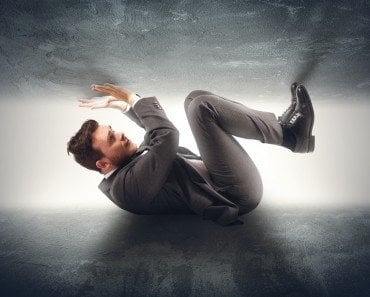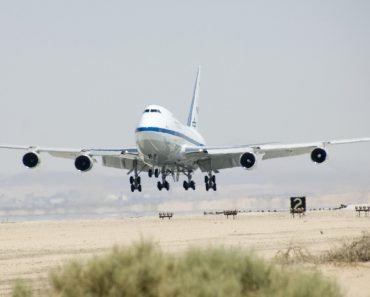Table of Contents (click to expand)
The air circulation system of any aircraft must take in breathable air from the outside of the plane and deliver it to the passengers, as it simultaneously cycles out the old air. However, the air outside of a plane at 35,000 feet tends to be extremely dry, with a humidity of only 10-20%. Compared to the comfortable level of 30-60% humidity that most people are used to, this tends to reduce the moisture within the body. Some people also find air travel to be stressful, which might increase sweating and further decrease hydration.
Imagine the last time you were on a flight, one that was at least two or three hours in duration. The snacks were too few and far between, the alcohol was overly expensive, and by the time you landed in your destination, your throat was oddly parched. In fact, your eyes were probably rather dry too!
This is not a unique occurrence; most people experience this sort of dehydration when they travel – both in planes and cars. Sometimes, dogs do too!

However, just because it happens to everyone doesn’t make it any less interesting – so what’s the real reason behind this common phenomenon?
Short answer… air circulation systems.
Recommended Video for you:
The Air Up There
When you are traveling in a plane, the cabin must be pressurized and fresh oxygen must be provided to the passengers. If people gulped in all the oxygen in the sealed tube and then exhaled carbon dioxide, eventually, there wouldn’t be any air left to breathe!
Therefore, the air circulation system of any aircraft must take in breathable air from the outside of the plane and deliver it to the passengers, as it simultaneously cycles out the old air. However, the air outside of a plane at 35,000 feet tends to be extremely dry, with a humidity of only 10-20%. Compared to the comfortable level of 30-60% humidity that most people are used to, this tends to reduce the moisture within the body. Some people also find air travel to be stressful, which might increase sweating and further decrease hydration.
When the air around you is dry (low humidity), water from your nose, eyes, mouth and throat is attracted to the drier air molecules around you, in a process similar to convection or evaporation. Therefore, while you might feel as though you are properly hydrated before traveling, over the course of a flight, be it 2 hours or 12 hours, your body will lose a great deal of its water to the dry air around you. This circulated air is good for keeping the air clean, but it certainly doesn’t help the water balance in your body.
There is also a second effect that air travelers must deal with; when the air is dry, the cilia in your throat and nose don’t function as effectively to catch and eliminate airborne pathogens and irritants, so it can actually be easier to get sick on a plane, even though the air is being recycled and circulated throughout the flight.
Dehydrated On The Roads
Although dehydration while flying is quite common, and something that most people can relate to, driving dehydration is not as readily recognized. When we are sitting for long periods of time on a road trip, perhaps in the summer, our bodies are naturally warmer, which means that we tend to sweat more. Furthermore, if you are using the air conditioning in your car, that jet stream of air is more readily removing water from your skin and keeping you cool, even as your body continues to push out more sweat.
When combined with the normal loss of hydration through breathing, it can be very easy to become dehydrated in the car without noticing. You may not be performing any physical exertions, per se, but your body is constantly losing water – particularly at the warmer spots of contact between your body and the seat.

There are some studies arguing that driving while dehydrated is just as dangerous as driving drunk. It can result in slow reflexes, exhaustion, blurred vision, light-headedness, dizziness and a lack of focus. All of this can spell disaster in the tenth hour of a cross-country road trip, so you need to ensure that you stay hydrated. A good practice is to grab a bottle of water or two each time you stop to fill up the car, and drink electrolyte-infused drinks consistently throughout the drive.
How To Counter Travel Dehydration
The obvious solution to being dehydrated while traveling is to drink more water, but that can be easier said than done, particularly with stringent liquid restrictions on airplanes, and the lack of physical exertion – which typically works as a trigger to drink more water. As mentioned above, you should always set out for a road trip with plenty of food and water in the car, and again, staying away from salty junk food is essential.
Eating water-rich foods like fruits and vegetables is a good way to keep your hydration levels up between beverages, and avoiding dry, salty snack foods is also a good piece of advice. This might be difficult when all you are offered on airplanes is sodium-packed snacks, but what you can do is avoid alcohol. Aside from being wildly expensive on flights, alcohol also dehydrates the body. While it might be tempting to catch a buzz during that transatlantic flight, the hangover and the dehydration by the time you land will be much worse.
Dressing appropriately for travel can also help. If you are worried about the effects of dehydration, err on the side of being slightly colder, rather than overdressed, as too many clothes will increase the rate at which you perspire. Dressing in layers and paying close attention to your body temperature is key. Bringing saline drops for your eyes, as well as mints to stimulate saliva production, can also make your trips more comfortable, even if your body feels a bit dried up.
Most importantly, if you are feeling lightheaded, dizzy, confused or simply parched, stop what you’re doing and drink plenty of water. The effects of dehydration can be serious, in some cases, so it’s always worth addressing immediately to keep yourself and others safe.













